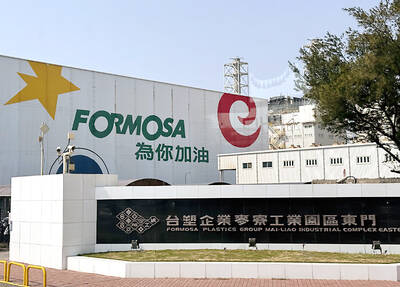AU Optronics Corp (友達光電), the world’s third-largest supplier of liquid-crystal-display (LCD) panels, yesterday said it would eliminate less than 2 percent of its global workforce.
The Hsinchu-based company’s announcement comes amid widespread job losses in Taiwan and elsewhere.
About 760 of the company’s 38,000 employees around the globe will be affected, Hsiao Ya-wen (蕭雅文), an official at the company’s corporate communications department, said by telephone.
She declined to offer the number of employees in Taiwan who would lose their jobs.
Hsiao said the layoffs were a regular workforce adjustment based on the annual performance reviews. Each year the company lays off between 1 percent and 2 percent of its employees after staff reviews, she said.
As the global economic downturn hits demand for flat panels used in TVs and computer monitors, AU Optronics has seen a drop in its factory utilization and sales in recent months, which has prompted the company to take cost-saving measures.
Last month, the company said it would slash the salaries of senior executives by between 10 percent and 15 percent and demanded a mandatory three days of unpaid leave per month for all employees beginning on Jan. 1.
The company also said it would not extend contracts with temporary workers.
The company’s preliminary consolidated revenue of NT$14.7 billion and unconsolidated revenue of NT$14.7 billion for last month were down by 17 percent and 16.7 percent respectively from the previous month. Consolidated and unconsolidated revenues for last month were both down by about 70 percent year-on-year, AU Optronics said earlier this month.
For last year, the company’s unaudited consolidated revenue totaled NT$423.9 billion, down 11.7 percent from a year earlier. Unconsolidated revenue totaled NT$422 billion, a drop of 12 percent year-on-year.

EXTRATERRITORIAL REACH: China extended its legal jurisdiction to ban some dual-use goods of Chinese origin from being sold to the US, even by third countries Beijing has set out to extend its domestic laws across international borders with a ban on selling some goods to the US that applies to companies both inside and outside China. The new export control rules are China’s first attempt to replicate the extraterritorial reach of US and European sanctions by covering Chinese products or goods with Chinese parts in them. In an announcement this week, China declared it is banning the sale of dual-use items to the US military and also the export to the US of materials such as gallium and germanium. Companies and people overseas would be subject to

Taiwan Semiconductor Manufacturing Co (TSMC, 台積電) founder Morris Chang (張忠謀) yesterday said that Intel Corp would find itself in the same predicament as it did four years ago if its board does not come up with a core business strategy. Chang made the remarks in response to reporters’ questions about the ailing US chipmaker, once an archrival of TSMC, during a news conference in Taipei for the launch of the second volume of his autobiography. Intel unexpectedly announced the immediate retirement of former chief executive officer Pat Gelsinger last week, ending his nearly four-year tenure and ending his attempts to revive the

WORLD DOMINATION: TSMC’s lead over second-placed Samsung has grown as the latter faces increased Chinese competition and the end of clients’ product life cycles Taiwan Semiconductor Manufacturing Co (TSMC, 台積電) retained the No. 1 title in the global pure-play wafer foundry business in the third quarter of this year, seeing its market share growing to 64.9 percent to leave South Korea’s Samsung Electronics Co, the No. 2 supplier, further behind, Taipei-based TrendForce Corp (集邦科技) said in a report. TSMC posted US$23.53 billion in sales in the July-September period, up 13.0 percent from a quarter earlier, which boosted its market share to 64.9 percent, up from 62.3 percent in the second quarter, the report issued on Monday last week showed. TSMC benefited from the debut of flagship

TENSE TIMES: Formosa Plastics sees uncertainty surrounding the incoming Trump administration in the US, geopolitical tensions and China’s faltering economy Formosa Plastics Group (台塑集團), Taiwan’s largest industrial conglomerate, yesterday posted overall revenue of NT$118.61 billion (US$3.66 billion) for last month, marking a 7.2 percent rise from October, but a 2.5 percent fall from one year earlier. The group has mixed views about its business outlook for the current quarter and beyond, as uncertainty builds over the US power transition and geopolitical tensions. Formosa Plastics Corp (台灣塑膠), a vertically integrated supplier of plastic resins and petrochemicals, reported a monthly uptick of 15.3 percent in its revenue to NT$18.15 billion, as Typhoon Kong-rey postponed partial shipments slated for October and last month, it said. The